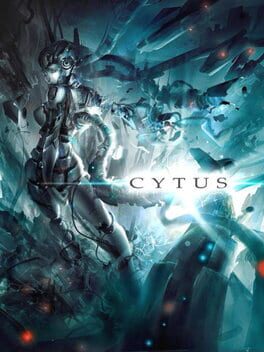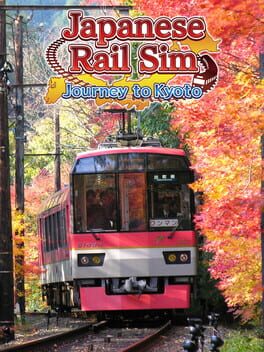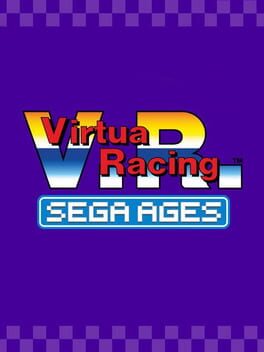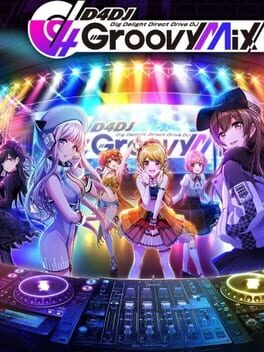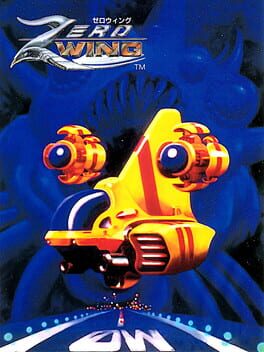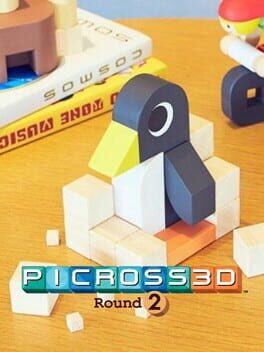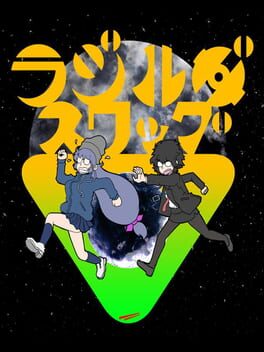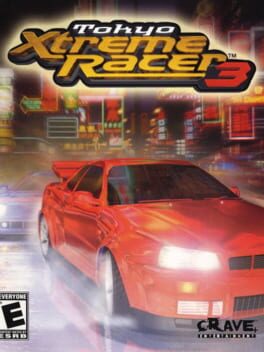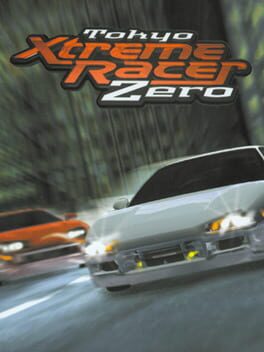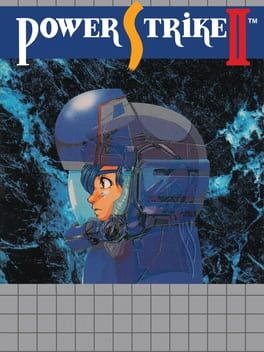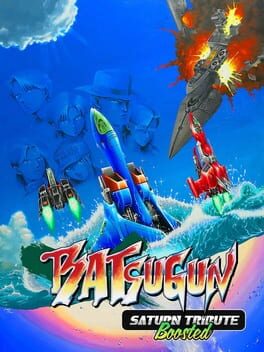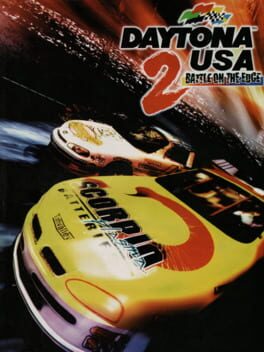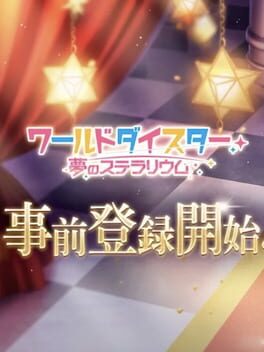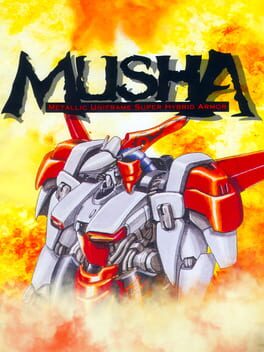RinMari
BACKER
2012
I played this quite a bit on an an iPad. Excellent song quality and variety, and beautiful song artwork.
This game used to have song packs unlocked one chapter at a time every 100,000 downloads, until the fulfillment of the 1,000,000 downlaod campaign, which was met. Now only a few song packs are locked by DLC and over 180 songs are available with the initial purchase.
I like the scanline note presentation and it's one of the few rhythm games where I don't mind the speed of notes being based on BPM. The timing windows are fairly loose, which might be a turn-off for more "hardcore" players but there are certainly players who don't mind it too much. Also, the difficulty scale is out of 9 and there's a huge spread of difficulty in the level 9 range. Also scoring is combo-based, with all the problems that entail (miss 1 note in the middle and it's worse than missing several notes at either end); there is an alternate scoring system called TP that is accuracy-based, but it's heavily de-emphasized in favor of score.
Frankly I prefer this over Cytus II. Cytus II is too grindy and reliant on DLC purchases.
This game used to have song packs unlocked one chapter at a time every 100,000 downloads, until the fulfillment of the 1,000,000 downlaod campaign, which was met. Now only a few song packs are locked by DLC and over 180 songs are available with the initial purchase.
I like the scanline note presentation and it's one of the few rhythm games where I don't mind the speed of notes being based on BPM. The timing windows are fairly loose, which might be a turn-off for more "hardcore" players but there are certainly players who don't mind it too much. Also, the difficulty scale is out of 9 and there's a huge spread of difficulty in the level 9 range. Also scoring is combo-based, with all the problems that entail (miss 1 note in the middle and it's worse than missing several notes at either end); there is an alternate scoring system called TP that is accuracy-based, but it's heavily de-emphasized in favor of score.
Frankly I prefer this over Cytus II. Cytus II is too grindy and reliant on DLC purchases.
Solid port of the original that gives it a 60 FPS facelift while remaining faithful to the source.
That said, it might be a little too faithful for some, as it lacks any of the extra content from the previous home ports.
Also the multiplayer is awful! Local multiplayer can only be done on the same unit and everyone has to use single Joy-Cons, you can't bring a Pro Controller or other non-Joy-Con controllers. The online multiplayer is so terrible it might as well not exist, as it's only two players, there's a forced PvP window that can be distracting, and the performance is pretty bad.
That said, it might be a little too faithful for some, as it lacks any of the extra content from the previous home ports.
Also the multiplayer is awful! Local multiplayer can only be done on the same unit and everyone has to use single Joy-Cons, you can't bring a Pro Controller or other non-Joy-Con controllers. The online multiplayer is so terrible it might as well not exist, as it's only two players, there's a forced PvP window that can be distracting, and the performance is pretty bad.
2020
I've been playing since April 2022, and have logged in almost every single day.
I picked this game up because I found out it has an alternate "Technical" scoring system, in addition to the gacha-based scoring also found in games like Love Live! School Idol Festival, BanG Dream! Girls Band Party, and Project Sekai: Colorful Stage!. Some people are opposed to the idea of it being behind a paywall, I figure the reason it's paywalled is because otherwise nobody would spend money, I decided to take the fee.
I was pleasantly surprised by how well-designed this game is. Hold notes do not require releasing them at the exact moment, charts are genuinely designed around two-finger play, each chart has a radar detailing the chart's characteristics, and there's a wide variety of songs, from the obvious originals that have many different styles from the 9 featured units, to cover songs by the same units, and even non-cover songs from outside sources. I was quite surprised that this game features remixes of retro game songs.
I'll...also admit that I've saved up several times for the gacha. I tell myself that gacha is an inherently exploitative business model, but I couldn't stay away from Merm4id cards...
Story is so-so, I only read stories to get free gacha gems, other than M4's and the side:nova stories.
P.S. If you are that rare combination of "Is a Merm4idsimp fan" and "likes shmups", please come see me.
I picked this game up because I found out it has an alternate "Technical" scoring system, in addition to the gacha-based scoring also found in games like Love Live! School Idol Festival, BanG Dream! Girls Band Party, and Project Sekai: Colorful Stage!. Some people are opposed to the idea of it being behind a paywall, I figure the reason it's paywalled is because otherwise nobody would spend money, I decided to take the fee.
I was pleasantly surprised by how well-designed this game is. Hold notes do not require releasing them at the exact moment, charts are genuinely designed around two-finger play, each chart has a radar detailing the chart's characteristics, and there's a wide variety of songs, from the obvious originals that have many different styles from the 9 featured units, to cover songs by the same units, and even non-cover songs from outside sources. I was quite surprised that this game features remixes of retro game songs.
I'll...also admit that I've saved up several times for the gacha. I tell myself that gacha is an inherently exploitative business model, but I couldn't stay away from Merm4id cards...
Story is so-so, I only read stories to get free gacha gems, other than M4's and the side:nova stories.
P.S. If you are that rare combination of "Is a Merm4id
1989
captain_whatyousay.png
Didn't really care for it. The enemy capture system seems like it would be fun but all it's good for is making ad-hoc shields. There's nothing groundbreaking about this game nor does it execute the existing shmup formula in an outstanding way.
This is one of two side-scrollers Toaplan made (as opposed to top-down shooters, which make up the bulk of their output) - I prefer the other one, Hellfire, much better.
Didn't really care for it. The enemy capture system seems like it would be fun but all it's good for is making ad-hoc shields. There's nothing groundbreaking about this game nor does it execute the existing shmup formula in an outstanding way.
This is one of two side-scrollers Toaplan made (as opposed to top-down shooters, which make up the bulk of their output) - I prefer the other one, Hellfire, much better.
2015
Just going to preface this by saying that I haven't played the original Picross 3D so I can't compare this game against that one.
This is a solid 3D take on Picross, the modifications to the rules to make it work with cubes rather than squares work out quite well. I also appreciate that there are multiple difficulty levels for each puzzle to accomodate different skill levels or, in my case, different degrees of "I want to go ham" or "I want to take it a little easier."
My only real complaint is that this game uses "Mario rules" (i.e. immediate alert and penalties for missing) as opposed to Free/"Wario" rules (no penalties, but fix the mistakes yourself), but given the nature of working with 3D shapes as opposed to 2D grids, having to use the former ruleset is inevitable.
This is a solid 3D take on Picross, the modifications to the rules to make it work with cubes rather than squares work out quite well. I also appreciate that there are multiple difficulty levels for each puzzle to accomodate different skill levels or, in my case, different degrees of "I want to go ham" or "I want to take it a little easier."
My only real complaint is that this game uses "Mario rules" (i.e. immediate alert and penalties for missing) as opposed to Free/"Wario" rules (no penalties, but fix the mistakes yourself), but given the nature of working with 3D shapes as opposed to 2D grids, having to use the former ruleset is inevitable.
2019
2021
If you just want a vanilla vertical-scrolling rhythm game, this is a good choice for mobile. There's both "Thumb" charts for handheld play and "Multi-Finger" charts for tabletop play, so regardless of your device or play style you can still get a lot of mileage out of this. Songlist is solid too with some fresh faces and a lot of familiar rhythm game regulars and there's something for everyone. There is also the "slide input" mechanic which helps out thumb-based players by allowing them to slide their fingers across lanes to avoid wearing themselves out. I also greatly appreciate what I consider "standard rhythm game QoL features": scroll speed setting, mirror mode, timing offset adjustment, and early/late indicators. And on top of that, the standard judgement setting is pretty fair and allows for satisfactory play at most skill levels, but if you want to push yourself, there is the "Lunatic" judgement option with timing windows more akin to pop'n music or EZ2ON REBOOT : R, and scores are saved separately for that judgement type.
This game features some nice visual customziation options. In additon to being able to modify visual skins for backgrounds, lanes, etc, you can also apply stickers to the playfield, whether it be for decoration or to obscure the playfield, either as a self-imposed challenge or to fine-tune note visibility for more precise or reactive play.
It does feature some bugs and typos here and there, and amongst the community the game is infamous for its inaccurate difficulty ratings -- the general trend seems to be that newer songs tend to be easier (seriously, I've played S20s released in late 2022 that are easier than early-version S16s!!). Course-related modes leave much to be desired, either due to costing a good chunk of in-game currency or having bugs related to timing offset. Finally, while I laud the game for having thumb and multifinger modes, the hitboxes in thumb mode are unforgiving and I tend to miss notes that don't feel like they should've been misses.
There's also a decent amount of free content (albeit requiring unlocking) so you can try the game out before you start to make monetary investments into the DLC packs.
This game features some nice visual customziation options. In additon to being able to modify visual skins for backgrounds, lanes, etc, you can also apply stickers to the playfield, whether it be for decoration or to obscure the playfield, either as a self-imposed challenge or to fine-tune note visibility for more precise or reactive play.
It does feature some bugs and typos here and there, and amongst the community the game is infamous for its inaccurate difficulty ratings -- the general trend seems to be that newer songs tend to be easier (seriously, I've played S20s released in late 2022 that are easier than early-version S16s!!). Course-related modes leave much to be desired, either due to costing a good chunk of in-game currency or having bugs related to timing offset. Finally, while I laud the game for having thumb and multifinger modes, the hitboxes in thumb mode are unforgiving and I tend to miss notes that don't feel like they should've been misses.
There's also a decent amount of free content (albeit requiring unlocking) so you can try the game out before you start to make monetary investments into the DLC packs.
2003
I wanted to like this game, but some mistakes were made. Both on the devs' part and the localizers' part.
There's three cities now, with the Tokyo map expanded signfiicantly, and the lifebar system has been revised so that SP is held if you're trailing close enough, so the larger amount of content should make this a better game, right?
That is, if you don't mind blatant opponent rubberbanding that makes every opponent feel the same. Oh, and the localized version is impossible to beat, because of a combination of the game's credit system being deflated by 100, certain Wanderer requirements not being changed, and one Wanderer requiring more credits than you can hold. I won't forgive Crave for this tbh.
At least the opponent names have been changed back to the originals so there isn't an inexplicable majority population of Westerners in the racing scene anymore.
There's three cities now, with the Tokyo map expanded signfiicantly, and the lifebar system has been revised so that SP is held if you're trailing close enough, so the larger amount of content should make this a better game, right?
That is, if you don't mind blatant opponent rubberbanding that makes every opponent feel the same. Oh, and the localized version is impossible to beat, because of a combination of the game's credit system being deflated by 100, certain Wanderer requirements not being changed, and one Wanderer requiring more credits than you can hold. I won't forgive Crave for this tbh.
At least the opponent names have been changed back to the originals so there isn't an inexplicable majority population of Westerners in the racing scene anymore.
Played this in my high school years after reading a review of the original Wangan Midnight (i.e. not Maximum TUne) game that recommended this. Solid highway racing game, I like the whole lifebar concept.
Kinda wish the localized version didn't inexplicably turn most of the opponents into white people or change all the measurement units with no way to set them back to the original metric system. It's jarring to see mph in a game set in a country that uses km/h.
Kinda wish the localized version didn't inexplicably turn most of the opponents into white people or change all the measurement units with no way to set them back to the original metric system. It's jarring to see mph in a game set in a country that uses km/h.
1993
Adequate port of the original game, yes the game has about 6 frames of lag, I've been able to work well with it at least but I know not everyone is on board with that.
Beyons that, I love the soundtrack options - a good soundtrack is integral the shmup experience. Not only do you get the choice between the PCB original, the soundtrack mastering, the Saturn arrange, and the new Boosted arrange, you can even mix-and-match soundtracks (e.g. PCB for stage 1, Boosted for stage 2, etc.).
Training options leave something to be desired. There's only one savestate, stage practice is incomplete in Special Version since you can only start from the starts of loops, and while it's understandable that you can't load savestates if net ranking is on, you can't make savestates either. At least rewind is a handy feature for retrying problematic sections.
As for the game itself, this is Toaplan's final shmup, and commonly known as the first bullet hell game. It still lacks a lot of the design elements of later danmaku games, but it's getting there. It's a good bridge between classical "dadshmups" and modern bullet hell, keeping the player at the edge of the seat to the end. My only real gripe is that I find the fifth stage to be a bit uninspired, feeling like a generic military base, in contrast to the first four stages (aquatic base, beaches ending in a sky-high battle with a large ship, a canyon where you destroy a multi-armed gun battery, and a high-altitude raid on a giant battleship).
Beyons that, I love the soundtrack options - a good soundtrack is integral the shmup experience. Not only do you get the choice between the PCB original, the soundtrack mastering, the Saturn arrange, and the new Boosted arrange, you can even mix-and-match soundtracks (e.g. PCB for stage 1, Boosted for stage 2, etc.).
Training options leave something to be desired. There's only one savestate, stage practice is incomplete in Special Version since you can only start from the starts of loops, and while it's understandable that you can't load savestates if net ranking is on, you can't make savestates either. At least rewind is a handy feature for retrying problematic sections.
As for the game itself, this is Toaplan's final shmup, and commonly known as the first bullet hell game. It still lacks a lot of the design elements of later danmaku games, but it's getting there. It's a good bridge between classical "dadshmups" and modern bullet hell, keeping the player at the edge of the seat to the end. My only real gripe is that I find the fifth stage to be a bit uninspired, feeling like a generic military base, in contrast to the first four stages (aquatic base, beaches ending in a sky-high battle with a large ship, a canyon where you destroy a multi-armed gun battery, and a high-altitude raid on a giant battleship).
Improvement upon the original upon almost every aspect, I'm not a fan of the soundtrack myself but that's just my personal taste and I'm more partial to Mitsuyoshi. Tracks look great and three different vehicles exist to suit different skill levels.
There is an update of this game, Daytona USA 2: Power Edition, that is not on IGDB at this time, I honestly prefer the original. Power Edition introduces a medley course and the Hornet but the beginner course got a cosmetic downgrade, now it's just a generic speedway instead of a fancy biodome. But I'd rather have PE over nothing.
There is an update of this game, Daytona USA 2: Power Edition, that is not on IGDB at this time, I honestly prefer the original. Power Edition introduces a medley course and the Hornet but the beginner course got a cosmetic downgrade, now it's just a generic speedway instead of a fancy biodome. But I'd rather have PE over nothing.
I picked this game up over the summer after noticing it looks very similar to Project SEKAI. The most notable aspect to me is that despite being an "idol" game with gacha, it features accuracy-based scoring, and unlike D4DJ Groovy Mix, which features accuracy scoring too but behind a monthly paywall, accuracy scoring is available as part of the basic package - no payment needed. And like D4DJ there are no "perfect lock" (a skill that converts imperfect hits into perfect hits) cards either, so you don't have to worry about your full combos or all perfects feeling less legitimate just because it turns your your party has a perfect lock card. And grades and rewards are based around it too. This I find to be a shocking and pleasant move because presumably, most gacha/idol-based rhythm games on mobile make the player's score dependent on card parameters and skills in order to nag people to roll the gacha, and likely spend money on gacha gems for pulls in hopes of pulling that ultra-rare card.
The basic gameplay itself, which is variable-note-length "hallway"-style vertical scroll rhythm gameplay, is where people immediately run away because "oh, this is a ProSeka ripoff". Yeah, it looks a lot like ProSeka, but to me it feels like a more refined version of the game: Holds don't have to be released with perfect timing, holds with flicks at the end are colored differently so you know to expect flicks partway through and/or at the end of the note, and there are segments where the chart turns into fixed-width-and-quantity lanes that look pretty and emphasize that this part of the song is special. Yes, Goods break your combo in this game, but they still award score and given that there's not one, but two different types of Perfects, and Great, I think this is fair. (From what I've seen: Shiny Perfect is 101%, Perfect is 100%, Great is 70%, and Good is 10%.)
Now at first glance, there seems to be four difficulty levels: Normal, Hard, Extra, and Stella. These charts potentially provide a tough but fair challenge to even tablet playres. But perform a certain action and you unlock *Olivier difficulty. Olivier uses its own difficulty scale and is where you find charts that may require 3 or more presses at once, and where the game starts to get seriously spicy.
That said, don't think that because this game features free accuracy scoring, it means you can just ignore the gacha. There are a series of missions that are needed for song unlocks, and those depend on gacha-based score instead. And good gods, the way card skills and parameters work in this game are surprisingly complex. Instead of just card skills being "[score multiplier/healing/whatever] every time you pass this point in the song", each song has a unique chart detailing where card skills will activate. And card skills also have cooldowns: If the cooldown on a skill has not finished by the next activation point for that card's skill, it will not activate.
The songlist is okay. Of the originals, "Diamond no Chikai" stuck out to me the most. There are some covers as well, such as "Shiny Smily Story", and I was amused to find a cover of "Snow halation" from Love Live!.
Now, in the interest of transparency: I only know basic Japanese at best. Only enough to know some basic sentences and vocabulary, both general and rhythm game-specific. So my assessment of this game's system isn't exactly fair. If this game ever gets a localized release in Englishor Tagalog, but fat chance, or if I bother to re-study Japanese, I will be able to make a better assessment about this game's mechanics besides "hit note get points".
The basic gameplay itself, which is variable-note-length "hallway"-style vertical scroll rhythm gameplay, is where people immediately run away because "oh, this is a ProSeka ripoff". Yeah, it looks a lot like ProSeka, but to me it feels like a more refined version of the game: Holds don't have to be released with perfect timing, holds with flicks at the end are colored differently so you know to expect flicks partway through and/or at the end of the note, and there are segments where the chart turns into fixed-width-and-quantity lanes that look pretty and emphasize that this part of the song is special. Yes, Goods break your combo in this game, but they still award score and given that there's not one, but two different types of Perfects, and Great, I think this is fair. (From what I've seen: Shiny Perfect is 101%, Perfect is 100%, Great is 70%, and Good is 10%.)
Now at first glance, there seems to be four difficulty levels: Normal, Hard, Extra, and Stella. These charts potentially provide a tough but fair challenge to even tablet playres. But perform a certain action and you unlock *Olivier difficulty. Olivier uses its own difficulty scale and is where you find charts that may require 3 or more presses at once, and where the game starts to get seriously spicy.
That said, don't think that because this game features free accuracy scoring, it means you can just ignore the gacha. There are a series of missions that are needed for song unlocks, and those depend on gacha-based score instead. And good gods, the way card skills and parameters work in this game are surprisingly complex. Instead of just card skills being "[score multiplier/healing/whatever] every time you pass this point in the song", each song has a unique chart detailing where card skills will activate. And card skills also have cooldowns: If the cooldown on a skill has not finished by the next activation point for that card's skill, it will not activate.
The songlist is okay. Of the originals, "Diamond no Chikai" stuck out to me the most. There are some covers as well, such as "Shiny Smily Story", and I was amused to find a cover of "Snow halation" from Love Live!.
Now, in the interest of transparency: I only know basic Japanese at best. Only enough to know some basic sentences and vocabulary, both general and rhythm game-specific. So my assessment of this game's system isn't exactly fair. If this game ever gets a localized release in English
1990
Decent-ish game, took me a few tries to 1cc (1-credit/no-continue clear it). I kinda like the option formations but don't like how options can be destroyed. Game sure drags on though, but that's just typical Compile style, if you think 30 minutes is too short for a shmup then you might like this since it goes for about 40 minutes.
